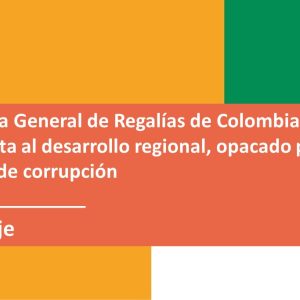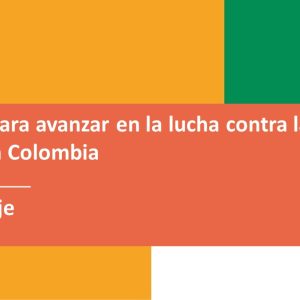The year 2021 will be decisive in defining the future of the country’s energy policy, as the first Pilot Project for Integrated Fracking Research (PPII) begins in Puerto Wilches, Santander.
Given the relevance of this issue for the country, since 2019, the Oil Barometer, the only syndicated study of the hydrocarbon sector, has tracked the national conversation on fracking.
Its latest results reveal that, in order to make these projects viable at the territorial and national level and to advance in the social licensing process, it is necessary for all stakeholders to openly discuss their impacts, opportunities and the future of this hydrocarbon production technique in the country.
In this context, the event “Fracking and Social License: Possible?” was convened, which brought together social license experts, members of the Fracking Experts Commission and representatives of the Government and Ecopetrol, in order to discuss this issue.
It was noted that while Colombians recognize the importance of the sector-74% believe that the oil industry is positive for the country, and 60% would agree with increasing oil operations to contribute to economic reactivation-perceptions about fracking are totally different.
Not only is there a high level of rejection – 73% would not agree with fracking in their municipality – but between 2019 and 2020 there is evidence of a greater polarization and radicalization of positions regarding this technique: while in 2019, 18% of Colombians were undecided about whether or not to accept fracking, this proportion fell to 9% in 2020.
This trend is also observed in Puerto Wilches – 69% would not agree with fracking in the municipality – showing that several challenges are faced in order to advance in the implementation of the IIPPs.
Despite the rejection, the Oil Barometer shows that there is also a greater willingness on the part of citizens to discuss this issue. A third of Colombians – 32% – would be willing to participate in some decisions on how fracking will be done in the country, a scenario that opens a window of opportunity for all national and territorial actors to participate in this conversation.
Against this backdrop, the Puerto Wilches pilot project goes beyond being a scientific scenario in which the viability of fracking for commercial purposes will be determined according to the impacts observed.
The Puerto Wilches IIPP is in itself a pilot for conversation in Colombia about those issues that, despite their level of controversy and even polarization, need to be addressed and discussed in order to move forward in the construction of a country.


